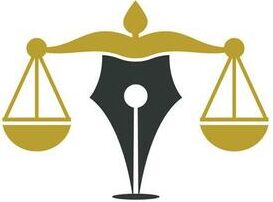Reckless driving vs DUI: both impact lives deeply. But how do they differ? Each year, countless accidents occur due to these factors.
Reckless driving endangers everyone on the road. DUI poses significant risks. Both can lead to severe legal consequences.
Understanding their differences is crucial. Which one carries harsher penalties? This blog explores the nuances between reckless driving and DUI.
We aim to provide clarity on the topic. Stay tuned to grasp the vital distinctions.
Reckless Driving Penalties
Reckless driving is a serious traffic offense. It refers to operating a vehicle with wanton disregard for the safety of others. Common examples include speeding, weaving in and out of lanes, and tailgating. If you find yourself facing charges for this behavior, then a Reckless driving lawyer richmond, va , or other areas, can help you navigate the legal field and explain how this could impact your future.
In most states, reckless driving is considered a misdemeanor. It means it is punishable by up to one year in jail and/or fines. These penalties are severe, but they pale in comparison to those for DUI.
DUI Penalties
DUI stands for Driving Under the Influence. It refers to operating a vehicle while intoxicated or impaired by alcohol or drugs. In most states, a first-time DUI offense is considered a misdemeanor.
Yet, the consequences vary depending on the level of intoxication and any prior offenses. A first-time DUI offender can face up to six months in jail, hefty fines, and license suspension for a specific period. Repeat offenders may face even harsher penalties, including mandatory jail time.
Key Differences Between Reckless Driving and DUI
The main difference between reckless driving and DUI is the element of intent. Reckless driving does not need proof of intent, only that the driver’s actions were dangerous and willful.
DUI involves operating a vehicle while knowingly impaired or with a blood alcohol concentration (BAC) above the legal limit. It means that in some cases, individuals charged with DUI may have a defense of lack of intent, while those charged with reckless driving do not.
Additionally, the dangers of drowsy driving compared to drunk driving cannot be overstated. Driving while fatigued can impair reaction times and decision-making abilities to levels similar to, or even worse than, those found in drunk drivers.
Despite its devastating consequences, drowsy driving is often overlooked and underreported as a major risk factor on the roads. This comparison underlines the critical importance of awareness and preventive measures against all forms of impaired driving.
Impact on Insurance
Both reckless driving and DUI can result in higher insurance premiums or even policy cancellation. Yet, DUI is typically considered more severe by insurance companies due to the significant risk it poses on the road.
A DUI conviction may result in a driver being labeled as high-risk. It leads to substantially higher premiums or even difficulty in obtaining insurance coverage.
Learning the Difference Between Reckless Driving vs DUI
Understanding the debate of reckless driving vs DUI is crucial. Each carries significant but distinct risks and penalties. A DUI accident proves more legally grave than reckless maneuvers.
Both actions, however, can dramatically impact public safety. Awareness and responsible behavior on the road are paramount.
The stark difference in consequences between DUI and reckless driving highlights the need for stricter adherence to traffic laws. Making informed choices can save lives and prevent unnecessary legal complications.

